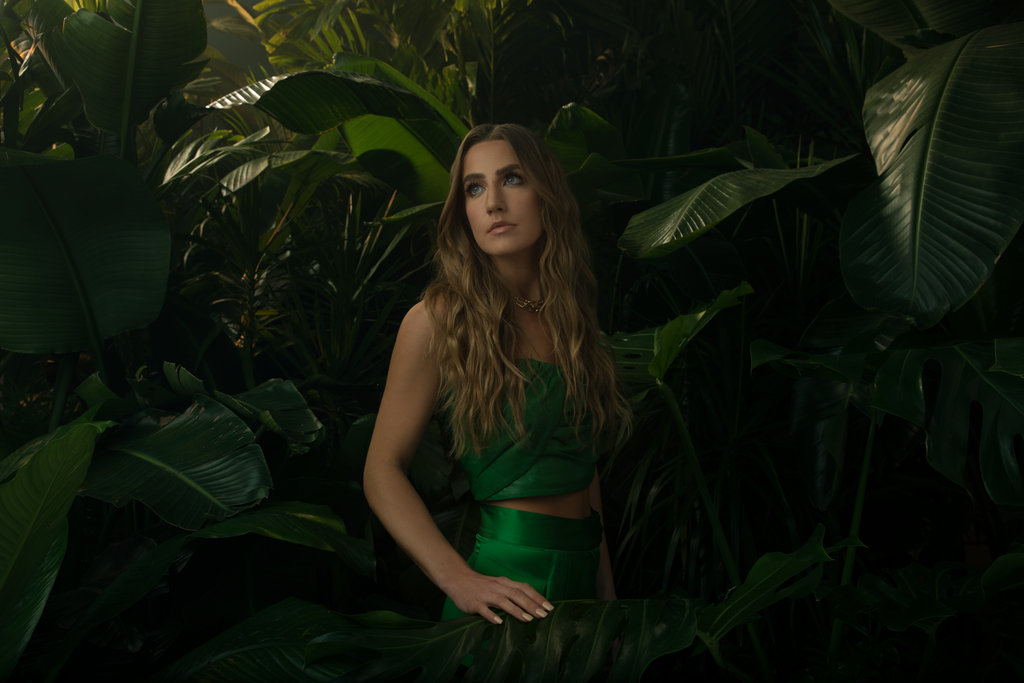While we’ve all been tucked away in our homes with our streaming music platform of choice to keep us going, women on country radio have been having a huge few months.
First, Maren Morris improbably crossed over from the pop to the country charts, landing her song “The Bones” in the No. 1 slot on Billboard’s Country Airplay chart and becoming the first woman to have back-to-back No. 1 singles from the same album since 2012.
Then, Ingrid Andress busted on to the scene. Her track “More Hearts Than Mine,” along with one from newcomer Gabby Barrett, became the first two women artists to bust into Billboard’s Country Airplay chart top 10 with singles from their debut albums in the entire history of the chart since its 1990 launch. Andress also found herself in the No. 1 slot on Billboard’s Emerging Artist chart and breaking the record for the most streams from a debut woman artist in country music.
If it sounds like Andress is the future of country, you’re right. She, along with a new generation of women artists, are reclaiming their rightful space on the charts and in the ears of country fans. Refinery29 caught up with her over the phone as she self-quarantines at home in Tennessee to find out how she wrote and co-produced her debut album, Lady Like, and what releasing an album in the middle of a pandemic has been like.
A big story I’ve been watching happen in music right now is women finally getting played on country radio. How are you feeling about it?
Ingrid Andress: “I feel like it has changed in a drastic way, very quickly. I was always told it was going to take some time before things changed and it took a short period of time. I’m still scratching my head about it, wondering if this is a long-term change. Women artists have been putting out undeniable, quality music that has gotten attention from people everywhere, even outside of country. Maren Morris and Kacey Musgraves have been putting out quality work and for them not to get recognized looked bad for country.
Do you think the songs we’re hearing from women now better fit what people want to hear in the pandemic — slower songs about feelings?
“To me, the verifying fact of it was when my song ‘More Hearts Than Mine’ went No. 1. My radio team and everyone around me told me it’s a unicorn moment because only rarely does a debut song by a woman that is a ballad go to No. 1. To me, it reassures me that [women] are setting the tone and raising the bar of what gets in that No. 1 slot. Radio programmers are seeing what songs people gravitate towards in streaming numbers. Not all of them are uptempo, happy songs. A lot of people want to get into their feelings, now more than ever.”
For this album, you opted not to work with big producers and songwriters. Why?
“As somebody who spent many years writing songs, I know what goes into making a demo and how people produce them. I was usually very a part of that process. Sonics are important — obviously, lyrics are important too. But how the track sounds is vital to if people like it or not. To me, that process, if you work with the bigger names in country, they tend to throw their sauce on it instead of listening to what you want. That’s why a lot of country music sounds the same, it’s made by the same producers. I haven’t been a huge fan of country music production for a minute and I didn’t want to be put in that category or a position where I had to go along with the bigger producer because he’s more well-known and ‘knows what he’s doing.’
“I’ve always believed you don’t need to write with bigger people to get big songs. You should write with your friends and people you’re comfortable with, who you believe in.”

You also co-produced the album, which is a big deal for a debut. How did that come to pass?
“At the beginning, it weirded people out because producing was a credit I wanted right out of the gate. I said if it was going to be a problem for anyone, we needed to work with somebody else. I knew I had to make a statement about it so that down the road no one would get angry. In country music especially, people are territorial about their roles. I’ve been in so many rooms and situations where songwriters are part of the production and don’t get credit. That needs to change; women need to stick up for what they contributed in the room that day. If I come up with a piano part, then that is me helping produce the song. If I have specific ideas about drum sounds, that’s producing.
“[Not taking the credit] was what I did at the beginning. I’d be like, Oh I didn’t touch any buttons so I guess I wasn’t really a producer on the song. Then you’d hear the final song and they would use a lot of your ideas from the demo. I learned to speak up about it because a lot of women don’t think they’re producers because they’re singers. But if they have ideas for different musical parts, the arrangement of a song, background things — that is producing.”
“At the beginning, it weirded people out because producing was a credit I wanted right out of the gate. I said if it was going to be a problem for anyone, we needed to work with somebody else.”
Ingrid andress
There have been so many milestones for this album already that have significant meanings for women in country music. How do you feel about them?
“It’s exciting and reassuring to know that people want to hear about how women actually feel. It’s a sigh of relief almost, like oh we knew we were right. This whole time we’ve been right [about women wanting to hear women]. I think that’s what every woman wants, actually, to have that reassured and feel like, okay we’re not crazy for thinking this. All the numbers and whatever are awesome, but at the end of the day, I’m just happy people are relating to what I’m saying. That’s the whole point of writing in the first place.”
I can’t imagine your life right now looks like anything you thought it would. How is your quarantine going?
“Definitely not. It’s one of those ‘it was the best of times, it was the worst of times’ situations. I’m pumped about my debut album and my song going No. 1 in country, but at the same time I’m celebrating in my apartment and not with people. It makes it feel like it’s all not happening. But I think it’s great that people can still listen to music in quarantine. That’s been the one thing saving my sanity, for sure, and that I can still make music — I have my keyboard set up here.”
Do you feel connected?
“It depends on the day, honestly [laughs]. Every day is so different. I have been taking it one day at a time, because that’s all we can do. Some days, I feel super connected and some days I don’t feel like talking to anybody. I think all [those] are okay. Everyone is processing it differently. Our society has ingrained in us that if we have any free time, we have to be productive. [The pandemic] is making everyone realize that you don’t have to be doing something all the time. You can just exist and still be okay. For creative people, it’s something we love to do but it still is a job. [It’s important to] tap into when it feels like a natural thing, as opposed to forcing yourself to do something because you’ve been told something needs to happen if you have free time. At the end of the day, you have to listen to your own body and thoughts, and do what’s best for you.”
Miranda Lambert Is More Than The Tabloids Think
Country Radio Listeners Want To Hear More Women
7 Women Who Changed The Game In Music In the 2010s
from refinery29
Ingrid Andress Isn’t Just Topping The Charts...
 Reviewed by streakoggi
on
May 11, 2020
Rating:
Reviewed by streakoggi
on
May 11, 2020
Rating:
 Reviewed by streakoggi
on
May 11, 2020
Rating:
Reviewed by streakoggi
on
May 11, 2020
Rating:




